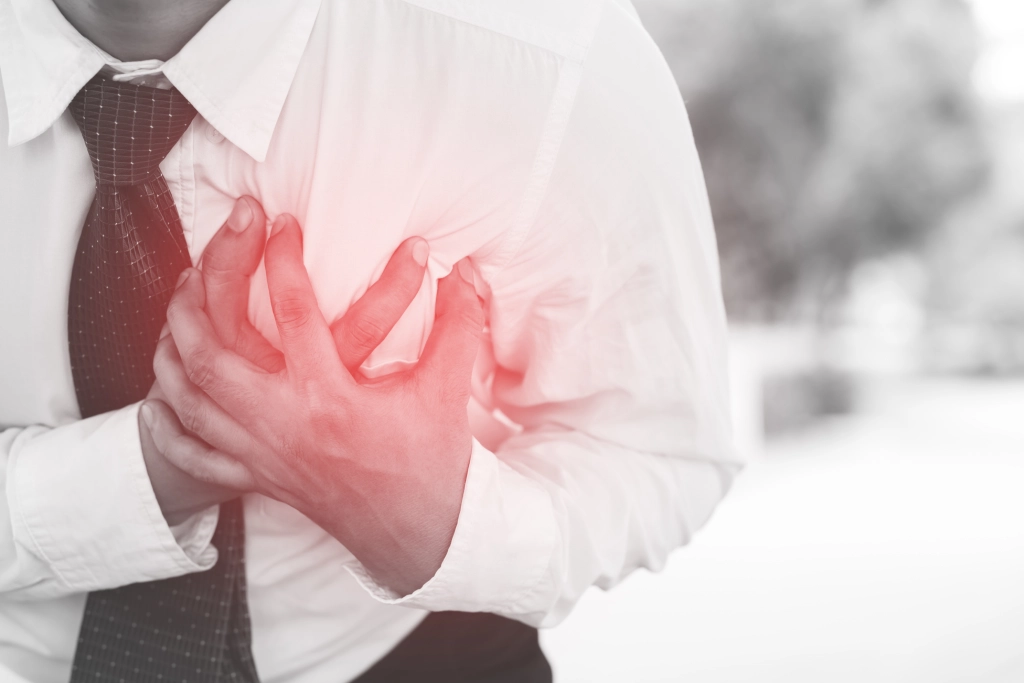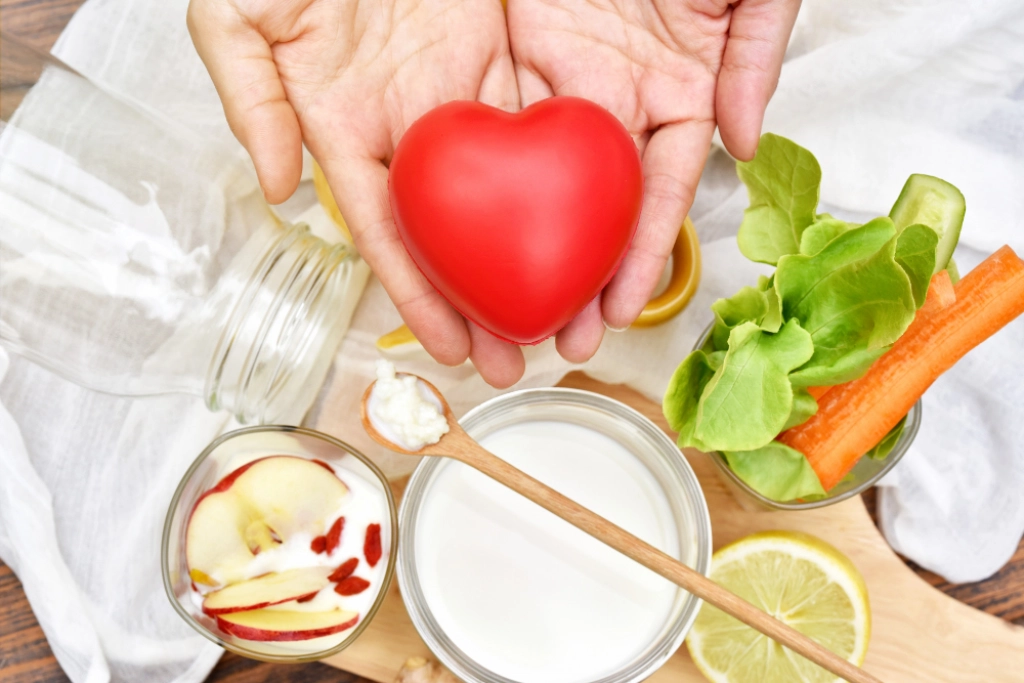Introduction
It’s a headline no one expects: a fit young athlete collapses on the field. A teenager faints during a regular workout. A 25-year-old with no known health issues suddenly stops breathing.
These aren’t just rare stories anymore; they are real, rising concerns. Cardiac arrest in young people is no longer limited to extreme cases or genetic outliers. From school students to gym-goers, it’s a silent threat that’s catching families, schools, and communities off guard.
So, why do young people have heart attacks or experience sudden cardiac arrest? What’s causing these emergencies in otherwise healthy youth?
This blog breaks it down in a way that’s easy to understand. You will learn the warning signs of cardiac arrest for young adults, explore the causes of cardiac arrest in young adults, and most importantly, find out what steps can help prevent it.
Because when it comes to the heart, being aware can be life-saving.
What is Cardiac Arrest?
Cardiac arrest occurs when the heart suddenly stops beating effectively, preventing blood from reaching vital organs. This can lead to death within minutes if not treated immediately.
It’s important to distinguish cardiac arrest from a heart attack. A heart attack is typically caused by a blockage in the coronary arteries, while cardiac arrest is usually triggered by electrical disturbances like arrhythmia in young people, which disrupt the heart’s rhythm.
While a heart attack can lead to cardiac arrest, many cases of sudden cardiac arrest in teenagers and young adults occur without prior symptoms, often due to undiagnosed heart conditions in youth.
Causes of Cardiac Arrest in Young People
Understanding the causes of cardiac arrest in young adults is important, especially because many of these conditions are silent until a crisis hits. Young individuals may appear perfectly healthy, yet an undetected heart issue can quickly become life-threatening.
Below are some of the most common culprits behind sudden cardiac arrest in teenagers and young adults:
1. Genetic Heart Disorders
Inherited heart conditions are a leading reason behind unexpected cardiac events. Hereditary heart disease in young people, such as Hypertrophic Cardiomyopathy (HCM) or Long QT Syndrome, can affect the heart’s structure or electrical system.
These issues often go unnoticed because symptoms like shortness of breath or fainting may be brushed off or may never appear at all.
But under stress, like during a sports game or intense workout, these conditions can trigger fatal heart rhythms.
2. Arrhythmias (Irregular Heartbeats)
Arrhythmia in young people can occur without structural heart problems. Instead, the heart’s electrical system misfires, causing dangerously fast, slow, or erratic heartbeats.
Some arrhythmias are harmless, but others, like ventricular fibrillation, can cause the heart to stop suddenly, even during sleep.
Many cases are linked to undiagnosed heart conditions in youth that only become evident after an incident.
3. Myocarditis (Heart Inflammation).
Often caused by a viral infection, myocarditis inflames the heart muscle and reduces its ability to pump blood effectively. It may cause mild symptoms at first, like fatigue or chest discomfort, but can quickly escalate.
This inflammation can lead to cardiac arrest symptoms in youth, especially if physical activity resumes too soon after illness.
4. Substance Abuse and Performance Supplements
Many young people experiment with stimulants, steroids, or even seemingly harmless energy drinks. These substances can stress the heart and lead to abnormal rhythms, particularly when combined with exercise.
This is becoming a significant contributor to heart problems in children and adolescents, especially in athletic settings. What seems like a quick energy boost could trigger cardiac distress.
5. Intense Physical Activity Without Screening
While sports are healthy and encouraged, they can pose risks to individuals with undiagnosed heart conditions in youth. Vigorous training can put sudden strain on the heart, and in cases of hereditary heart disease in young people, this can lead to fatal outcomes.
This is one of the leading causes of sudden death in young athletes and highlights the need for pre-participation cardiac screening.
6. Genetics and Family History
Sometimes, the strongest indicator isn’t how someone feels, but what runs in their family. If a close relative has experienced cardiac arrest in young people or was diagnosed with a serious heart condition early in life, there’s a higher risk.
Genetics and cardiac arrest in young people are tightly linked, and understanding your family medical history can offer important insights.
Common Warning Signs of Cardiac Arrest in Young People
While cardiac arrest in young people can strike without warning, some early symptoms often go unnoticed.
The table below gives you an overview of the most common cardiac arrest symptoms in youth that should never be ignored.
| Warning Sign | What It Might Indicate |
| Unexplained fainting (especially during exercise) | Potential arrhythmia or structural heart defect |
| Shortness of breath or fatigue with minimal effort | Early signs of heart muscle weakness or inflammation (e.g., myocarditis) |
| Chest pain or tightness | Could signal reduced blood flow or hidden heart conditions in young adults |
| Palpitations or fluttering heartbeat | May indicate arrhythmia in young people or irregular heart rhythms |
| Dizziness or light-headedness | Possible sign of poor circulation or abnormal heart rate |
| Family history of sudden cardiac events | Raises suspicion of hereditary heart disease in young people and calls for screening |
If you or someone close to you shows one or more of these signs, don’t ignore them. These are key warning signs of cardiac arrest for young adults, and early action could save a life.
How to Prevent Cardiac Arrest in the Young
While sudden cardiac arrest is often unpredictable, several proactive steps can significantly reduce the risk, especially among high-risk groups.
Here’s how parents, educators, and communities can help with the prevention of cardiac arrest in young people:
1. Early Screening
Routine cardiac screenings, including ECGs and echocardiograms, are important for detecting hidden heart issues. This is especially important for young athletes and individuals with a family history of heart disease.
Identifying undiagnosed heart conditions in youth early can make the difference between life and death.
2. Promote Heart-Healthy Habits
Teaching children and teens to maintain a heart-healthy lifestyle is a long-term investment in their well-being. A balanced diet, moderate exercise, and adequate sleep can help prevent early heart conditions in young adults.
Stress management techniques like mindfulness and open communication also play a key role in reducing cardiac strain.
For personalized guidance, you can also consult a certified nutritionist or health coach to create sustainable lifestyle habits that support heart health from an early age.
3. Limit Substance Use
Youth should be made aware of the cardiovascular risks linked to drug use, steroids, and high-caffeine energy drinks.
These substances can disrupt the heart’s rhythm and increase the risk of cardiac arrest in young people, especially during physical activity. Honest conversations and education around these topics are vital.
4. Public Awareness in Schools
Integrating heart health into school curriculums can foster early awareness among students and staff. Teaching the warning signs of cardiac arrest for young adults, along with basic CPR training, empowers young people to act fast in emergencies.
This kind of early education can lead to quicker response times and save lives.
5. Install AEDs
Automated External Defibrillators (AEDs) are essential in treating sudden cardiac arrest in teenagers. When installed in schools, sports facilities, and public venues, AEDs ensure immediate help is available before paramedics arrive.
Knowing how to use one and having one accessible can drastically improve survival rates.
Also Read: Low Cholesterol Diet Plan – Foods that You Should Eat
What to Do During a Sudden Cardiac Arrest
In a cardiac emergency, every second matters, especially when it involves a young person.
Knowing how to respond quickly and correctly can significantly improve survival chances.
| Step | Action | Why It Matters |
| 1. Call Emergency Services | Dial your local emergency number. | Starts the process of getting professional help. |
| 2. Begin CPR | Start chest compressions immediately. | Keeps blood flowing to vital organs. |
| 3. Use an AED | Use an AED and follow its instructions. | Can restore normal heart rhythm. |
| 4. Keep Calm | Stay with the person until help arrives. | Ensures steady support during the emergency. |
Quick action during cardiac arrest in young people, especially sudden cardiac arrest in teenagers, can greatly improve survival chances because every second counts.
Conclusion
The rise in cardiac arrest in young people is concerning, but with the right awareness and action, it’s preventable. Early detection, healthy habits, and emergency readiness can make a life-saving difference.
I am Tapasya Mundhra, a trusted dietician and nutritionist in Delhi, and I believe prevention starts with the right lifestyle. If you want to take charge of your heart health, you can book a personal counselling session or set up an appointment with me for custom nutrition and wellness guidance.
Let’s build a heart-healthy future, because no one should have to wonder, “Why do young people have heart attacks?”
Frequently Asked Questions (FAQ)
Question: What causes cardiac arrest in young people?
Answer: It’s often caused by genetic heart conditions, arrhythmias, myocarditis, or sudden exertion, especially in those with undiagnosed heart issues.
Question: Why would a 19-year-old have a cardiac arrest?
Answer: A 19-year-old may experience cardiac arrest due to inherited heart defects, arrhythmias, or stress on the heart during intense activity.
Question: Can a 25-year-old have a heart attack?
Answer: Yes, poor lifestyle habits, genetics, or substance use can lead to heart attacks even in people as young as 25.
Question: What is the most common cause of cardiac arrest in young athletes?
Answer: Hypertrophic cardiomyopathy (HCM) is the most common cause, often going undetected without proper screening.
Tapasya Mundhra is a Clinical Dietitian and Wellness Consultant based in Newark, USA, specializing in Nutrition for Weight Loss, Detox Diets, and Stress Management. With over 13 years of experience, she helps clients optimize their physical and mental well-being through personalized diet plans, moderate workouts, and holistic health strategies. Trusted by countless clients, she is dedicated to achieving sustainable health goals.

